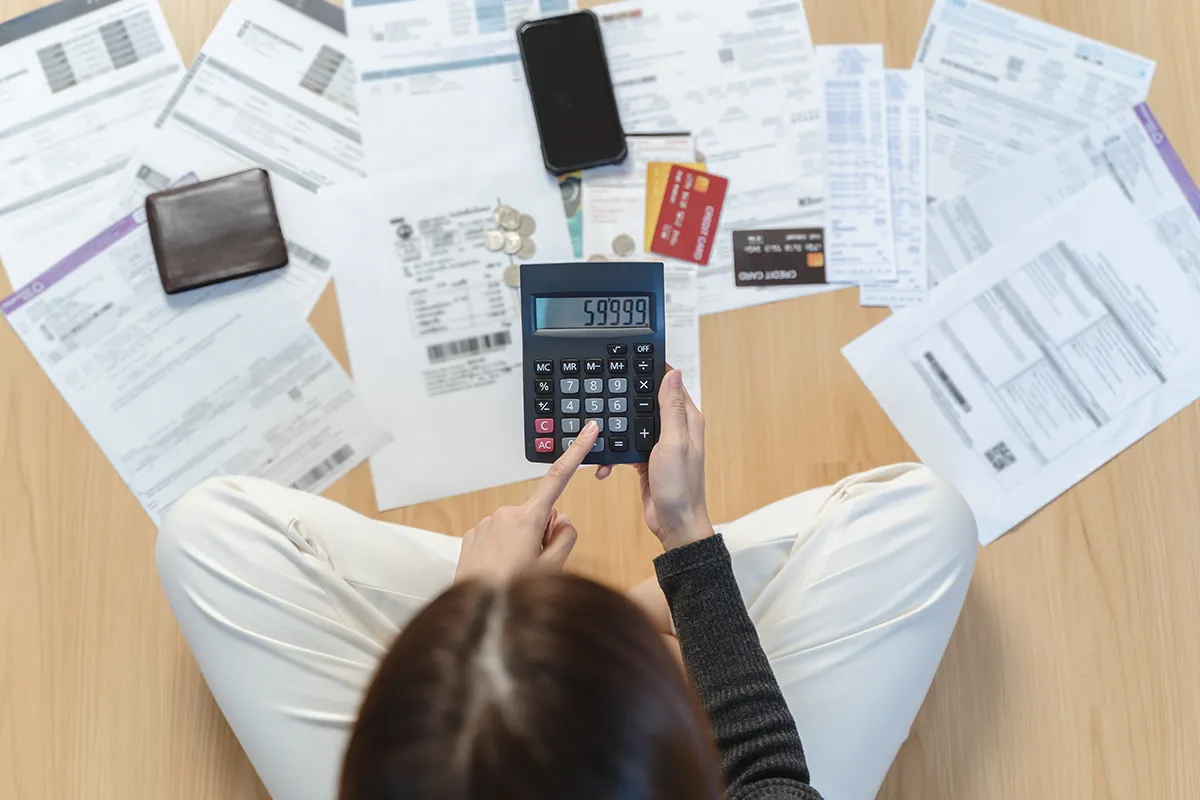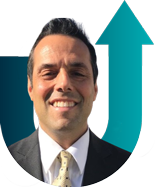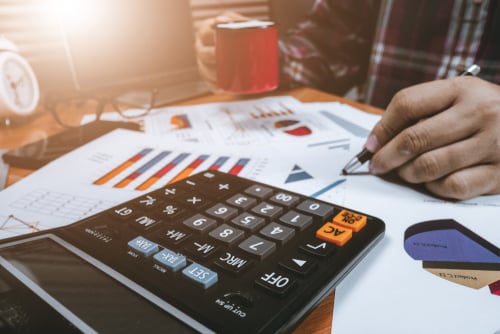What Happens if I Can’t Pay My Debt
Too much debt can cause many problems. As a practical matter, for many Americans, the financial pressure that results from carrying excessive debt interferes with peace of mind and day-to-day happiness.
Instead of saving money and moving ahead toward financial wellness, individuals burdened by too much debt are often forced to focus on merely making ends meet each month while living paycheck-to-paycheck and not accumulating any significant savings.
In fact, a 2018 survey conducted by the Federal Reserve Board revealed that 40% of Americans would not be able to afford a $400 emergency expense without incurring more debt! With so many Americans struggling with financial survival, it invites the question – What happens if you can’t pay your debt? Are some debts more important than others to pay off? Let’s take a closer look.

Secured Debt
Not all debt is created equal. Secured debt refers to debt that is collaterally backed, such as a home mortgage or auto loan. Secured debt is backed by physical assets (as opposed to unsecured debt) that serve as security and can be seized and sold in the event of non-payment – and it is very important to understand this reality.
Therefore, if you are having difficulty paying all of your bills and debts, prioritizing secured debt over unsecured debt is important.
ABC
What Happens If I Don't Pay Back Secured Debt?
The most important form of secured debt is a home mortgage. When someone falls seriously behind on mortgage payments, it is within the rights of the lender to initiate foreclosure proceedings on the property.
Many mortgages include a fifteen day grace period from the due date (usually with a late fee penalty) – but then once delinquency hits the thirty-day mark, lenders will often report the late payment to the three major credit bureaus (Experian, Equifax and TransUnion), and this can quickly damage a credit score by fifty points or more.
Formal foreclosure proceedings aren’t likely to kick in right away – but after 120 days, since liens are attached to real property through mortgages, creditors can efficiently seize and sell off property in a foreclosure auction.
Foreclosure actions frequently require little to no court proceedings and can often be completed within a matter of months. Similarly, the lien attached to an auto loan allows for quick repossession – sometimes after sixty days – in the event of non-repayment.
Communicate With Creditors
Many secured debt lenders are surprisingly willing to work with individuals who encounter difficulty paying their debts. Therefore, it is critical to contact your creditors at the first sign of trouble, and to be honest about your circumstances.
Lenders may reduce or suspend payments for a time, and in the case of mortgages, your lender may offer mortgage assistance programs to help avoid foreclosure.
It can also make sense to connect with a foreclosure avoidance counselor through HUD On the auto loan side, it can make sense to refinance in an attempt to lower the monthly payment and/or interest rate. Some auto lenders also offer financial hardship programs that can help with facilitating lower monthly payments.


Unsecured Debt
Unsecured debt refers to debt that is not collaterally backed – the debt is not backed by property such as a house or automobile that can be seized in the event of non-payment.
If you fail to repay unsecured debt, you are not subject to any loss of property until the creditor files a lawsuit and obtains a court judgment. There are many forms of unsecured debt – in fact, most debts are unsecured. Common forms of unsecured debt include credit cards, personal installment loans, student loans, medical bills and personal lines of credit.
What Happens If I Don't Pay Back Unsecured Debt?
When an individual falls delinquent or stops paying unsecured debt, a number of things happen. Late payments on credit cards often incur fees, and payments that are more than sixty days late will usually get reported to the three major credit bureaus, resulting in damage to a credit score and profile.
Credit score damage, in turn, leads to a diminished capacity to obtain additional credit at favorable terms – whether it be unsecured or secured debt. Creditors of unsecured debt can also turn the debt over to a collection agency who will (often aggressively) attempt to force repayment from the delinquent debtor. Creditors can also file a complaint in State or Federal court and serve the debtor a copy of the complaint in an effort to obtain a court judgment.


What Happens if a Creditor Obtains a Judgment?
If a creditor is successful at obtaining a judgment against an individual who has left unsecured debt unpaid, a number of things can happen. First of all, the individual may be subject to discussing under oath specific personal financial details related to income, assets and liabilities.
In the event of a court-ordered judgment, wage garnishment and liens placed on any personal assets (including bank accounts) remain very real possibilities until the debt is repaid.
These collection remedies are governed by state law and will vary. However, it would be foolish to think that skipping out on repaying unsecured debt does not come with real consequences. At the very least, a damaged credit score and late fees are a virtual certainty. Then there’s the issue of collection agencies getting aggressive with you in an effort to force you into repayment.
What Happens if I Don't Pay a Collection Agency Debt?
Debt collection agencies pursue unpaid debts on behalf of creditors while utilizing a variety of tactics that include persistent phone calls, menacing letters, and the possibility of lawsuits that can result in wage garnishment or asset seizures.
Given the inherent stress and unpleasantness involved, there are few experiences less appealing than having to deal with debt collectors. You may soon find yourself writing any number of cease and desist letters to a series of collections agencies who inherit your unpaid account.
It’s important to know that debt collections are a serious delinquency that will stain your credit score and profile for up to seven years, signalling to potential lenders that you are a less reliable borrower, making it more difficult for you to obtain subsequent credit at favorable terms in the future.
Additionally, collections actions will be visible to potential employers who view your credit report, and this can lead to unfavorable outcomes when pursuing a finance or upper-management position.


About The Author: Steven Brachman
Steven Brachman is the lead content provider for UnitedSettlement.com. A graduate of the University of Michigan with a B.A. in Economics, Steven spent several years as a registered representative in the securities industry before moving on to equity research and trading. He is also an experienced test-prep professional and admissions consultant to aspiring graduate business school students. In his spare time, Steven enjoys writing, reading, travel, music and fantasy sports.
Debt Relief Reviews
Are you in debt? we can help
Get Debt Relief
Speak with licensed debt specialists dedicated to guiding you toward financial stability every step of the way.

Ready To Get Started?
See if you qualify for debt relief. Get a Free savings estimate to see how quickly you can be debt free.
Embrace financial freedom with our tailored solutions, expert guidance, and unwavering commitment to your success.
Experienced Professionals
Our experienced team has helped thousands of clients successfully eliminate debt and regain financial freedom.
Customized Solutions
We know every financial situation is different, so we design personalized debt relief plans to fit your specific needs and goals.
High Success Rate
Our proven debt relief strategies deliver real results. With a strong track record of success, we help clients achieve lasting financial stability.
Confidential Consultation
Your privacy is our priority. All debt relief consultations are 100% confidential and handled with the highest level of discretion.
Explore other blogs











